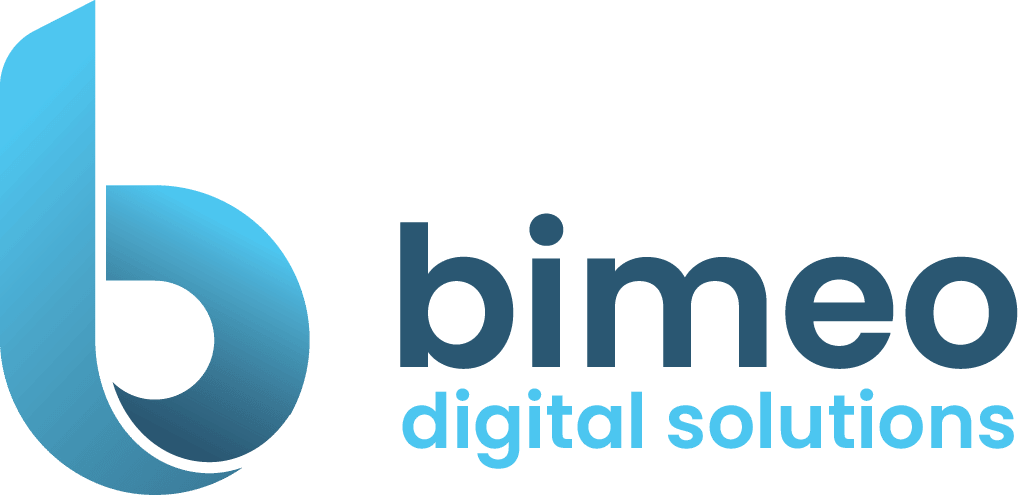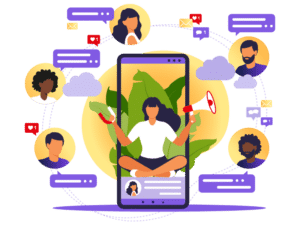
Influencer marketing is a term your company may or may not be familiar with, although you’ve certainly heard of “influencers” when it comes to social media marketing.
Influencers are individuals who have gained and sustain a significant following on popular social media channels, like YouTube, Instagram, and TikTok. Influencers can be celebrities, like Katy Perry or Lebron James – however, influencers can also be regular individuals who have defined their niche and brand, built a personality, and gained a following with their content.
While celebrity influencers are most popular when it comes to commercial industries, small companies can take advantage of other influencers for their company. Partnering with an influencer, just like partnering with a celebrity, lends credibility to the brand, pushes reach and exposure, and connects you directly with your target audience.
Dive in to learn more about influencer marketing, how you can connect with your local community through it, what a reasonable budget is, and the benefits of working with industry influencers to cut down on work but expand your reach.
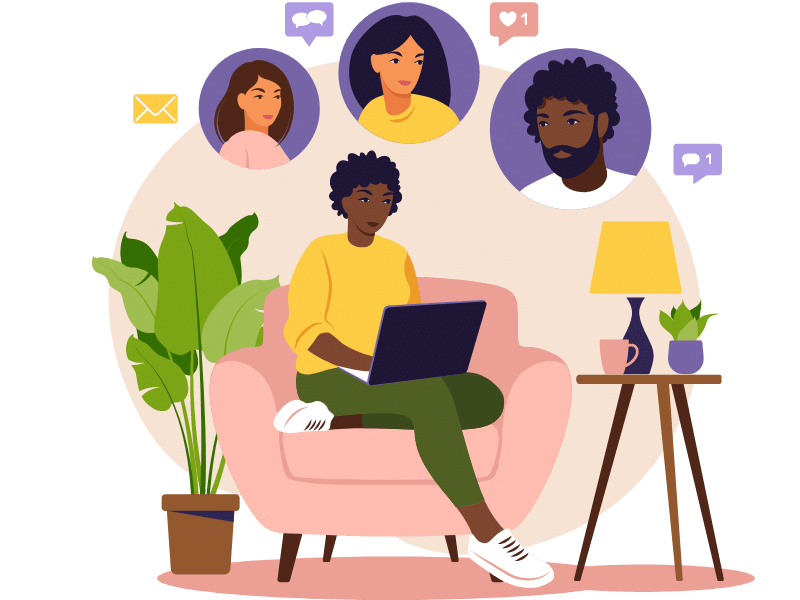
Understanding the Power of Influencer Marketing
Working with influencers can be a great way to amplify your brand’s reach, drive sales, build credibility, and generate user-generated content. When implemented correctly, influencer marketing drives sales through authentic, real interactions that show your product and service in real-time from people consumers trust – it is marketing, 5-star reviews, product demonstration, and brand growth all at once.
Partnering with an influencer is a great way to reach a target audience in a personable and genuine way. This is because the best influencers will be enthusiastic about you, your company, and your services or products so that their reviews and promotions are authentic – the best influencers only want to make genuine recommendations to their followers and will only back companies they like and trust.
Influencer Stats by the Numbers
On average, businesses generate $6.50 in revenue for every $1 invested in influencer marketing
of marketers used Instagram for influencer campaigns in 2022
of Gen Z and Millennials follow influencers on social media
of marketers plan to invest in influencer marketing for the first time in 2023
of Millennials trust product recommendations from influencers; this drops to 38% for product recommendations from celebrities
more engagement is generated by micro influencers than macro influencers
of marketers say that the biggest benefit of working with micro-influencers is that it is less expensive
of marketers invested 10 to 20 percent of their marketing budget into influencer marketing in 2022
Small businesses that use influencer marketing see a 267% increase in customer acquisition compared to those that don't
increase in user purchase intent when exposed to tweets from both a brand and an influencer compared to just a brand tweet
Influencer marketing is the fastest-growing online customer acquisition channel, beating out organic search and email marketing
of marketers consider influencer marketing an effective strategy
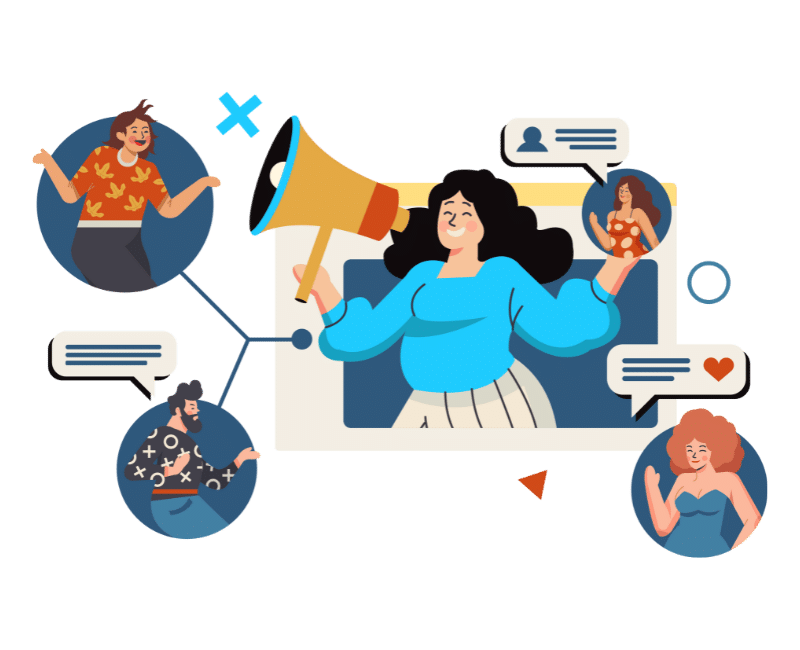
Benefits of Influencer Marketing
- Brand awareness
- Visibility and reach
- Drive sales
- Share discount codes and special offers
- Attract new customers
- Build credibility and trust
- Generate user-generated content
- Showcase your products or services in a more authentic way
In order to get these benefits, it’s important to partner with the right influencer for your company. In the next section, we dive into the types of influencers, contacting influencers, and creating marketing plans with influencers to help drive sales and reach.
How to Choose the Right Influencer for Your Local Business
By partnering with the right influencers, you can tap into their followers’ trust and influence to build brand awareness and loyalty. However, select the wrong influencer, and you won’t be reaching your target demographic or generating interest in your company.
Choosing the right influencer is a combination of knowing the different types of influencers to consider, defining a target audience, setting a budget, considering engagement rates, ensuring authenticity, and finding the right niche. Learn how to do so with our breakdowns below.
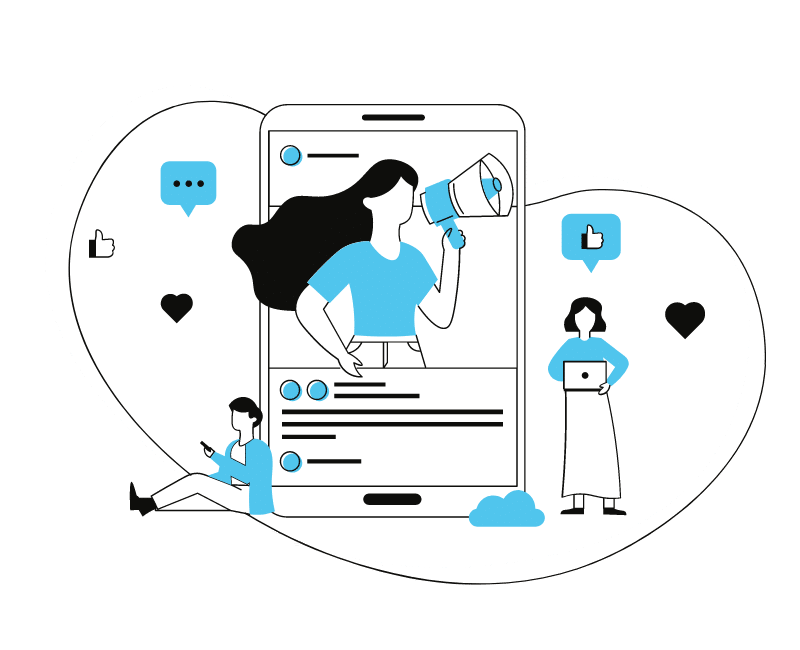
Different Types of Influencers

Celebrity Influencers
Typically high-profile individuals, such as actors, musicians, or athletes, who have a large following on social media

Macro Influencers
Individuals who have a large following on social media, typically in the hundreds of thousands to millions; often experts in a specific niche or industry

Micro Influencers
Individuals who have a smaller following on social media, typically in the thousands to tens of thousands; often more affordable to work with and can be effective in reaching a highly engaged and loyal audience
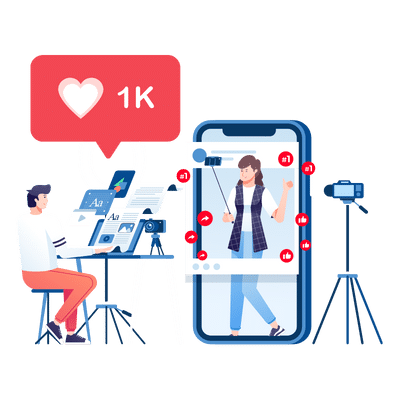
Nano Influencers
Individuals who have a very small following on social media, typically less than 10,000 followers; often highly engaged with their audience and can be effective in driving word-of-mouth marketing

Thought Leaders
Individuals who have established themselves as experts in a specific industry or niche; often highly respected and influential within their community, even with low follower numbers

Brand Advocates
Individuals who are already loyal customers of a brand and are willing to promote the brand to their followers on social media; often highly trusted and effective in driving customer loyalty
Identifying Your Target Audience
It’s important to have a clear understanding of your brand and the products or services you offer in order to define your target audience. From there, you can identify the characteristics of your ideal customer.
The right influencer for your company partnership will have followers that match the characteristics of your ideal customer. This will help you create targeted content that resonates with the audience and drives positive results.
- Research your industry, competitors, and target market to identify their demographics, interests, and behaviors
- Analyze your customer data to identify patterns and characteristics of your existing customers, such as age, gender, location, and interests
- Create buyer personas that represent your ideal customer to better understand their needs and preferences
Identifying Influencers That Match Your Brand
The right influencer will match your brand and have an engaged following that fits with your targetted audience. This is how you create the most authentic and genuine connection that will drive sales and increase your company’s reach.
Of all the steps, identifying influencers is the most crucial. It’s okay to reach out to a few influencers, ask them some questions, and get to know them and their personality before making a definitive selection. You can also partner with several influencers on a trial basis, renewing contracts with those who drive interest and choose not to renew with those that don’t connect with your audience.
Here’s how to start selecting influencers:
- Define your goals (are you looking to increase brand awareness, drive sales, or reach a new audience) and find an influencer whose content can drive that goal
- Review their content, including their social media posts, blogs, and videos, to ensure that their style and tone align with your brand’s voice and values
- Look for a similar aesthetic and message to your brand
- Check their partnerships to see if they have worked with similar brands to yours
- Reach out to them and provide them with a clear brief on your campaign goals and expectations
- Ask for a creative brief, mock content, and how they define your company, products, and service
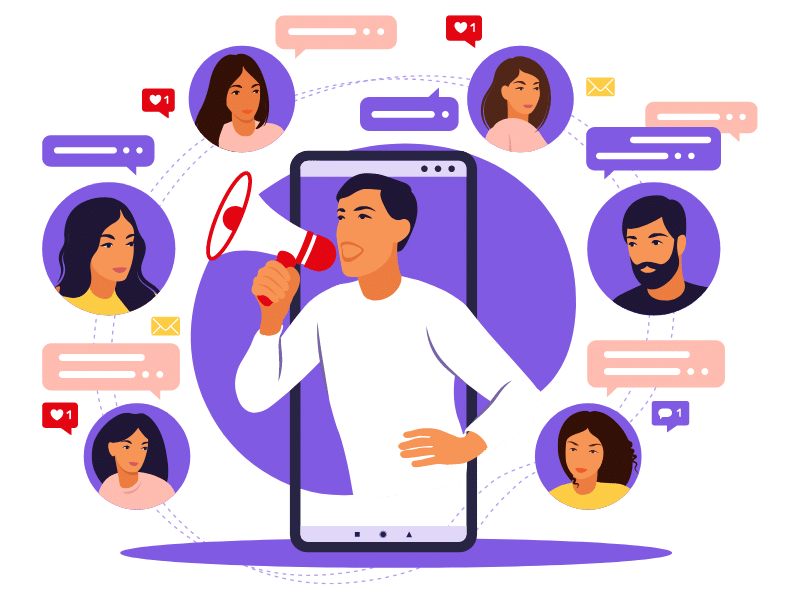
Analyzing an Influencer's Reach and Engagement
No matter if your intent is to drive new sales, reach new audiences, or expand the reach of your company, you want the influencers you partner with to have stable and consistent reach and engagement. Influencers should be well-formed in how to navigate shifting social media trends, staying on the good side of a platform’s rules, and keeping their followers happy.
You want to ensure you can trust your influencer to maintain these stats during your partnership and campaign. Here are a few quick and easy tips to feel confident proceeding with outreach and campaign brainstorming.
- Look at their follower count to understand the potential reach (remember, follower count does not equate to high engagement)
- To determine an influencer’s engagement, divide their total number of likes and comments by their follower count; high engagement rate is typically 3-6%
- Look at the demographics of an influencer’s audience, including age, gender, and location, to ensure that they align with your target audience
- Determine if their content aligns with your brand and if their engagement is genuine
- Look for influencers who produce high-quality content and whose followers actively engage with their posts
- Use influencer marketing tools to analyze reach and engagement, like HypeAuditor, Social Blade, and Influencer Marketing Hub – a digital marketing company can also help vet influencers for your campaign
How to Reach Out to Influencers
Ready to reach out to influencers and jumpstart your campaign? You want to have an outreach plan in place, a way to track who you’re talking with, a budget in mind, a creative brief prepared, and know your goals and what you’ll supply to each influencer.
Work with your marketing team or approve the plan set forth by your digital marketing team to make sure the first impression outreach accurately reflects what you’re looking for, what your goals are, and what you have to offer.
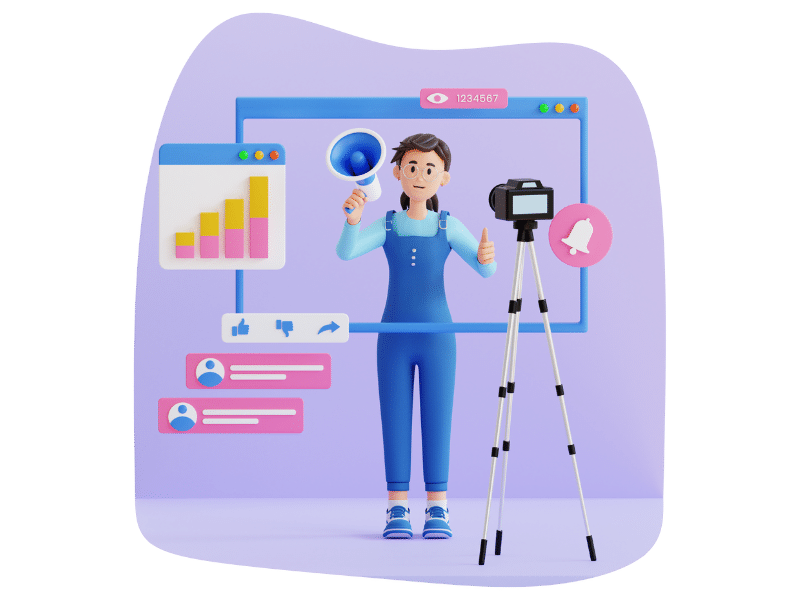
Ways to Contact Influencers
Influencers can be contacted a number of ways and it is up to you, your team, or your digital marketing company to properly do the research to contact an influencer their preferred method. This may be via their DMs (direct messages), a listed email, a contact form on a website they link back to, or via an agent or representation they may have.
Once you’ve identified the influencers you’re interested in, scope out their comments, bio, and/or website to see if they list their preferred contact method. This is critical because some influencers won’t see a comment from a partnership brand if it gets buried, their inbox may be too full to weed through on a daily basis, or they make take offense if you contact them via their personal bio.
Remember to check linktree links and more for info and get familiar with social media acronyms and trending emojis so you can decipher quick messages in bios with limited text boxes, like Instagram and TikTok.
Creating an Influencer Outreach Plan
- Define your campaign goals
- Know what collaboration options you are open to
- Research potential influencers and make a list
- Tailor your pitch to their style, content, and what you admire about their platform
- Offer value via your collaboration options
- Follow up in a week or two
- Build a relationship

Determining Which Collaboration Is Best

Sponsored Content
Your company pays an influencer to create content that features your product or service in the form of social media posts, blog posts, videos, or images
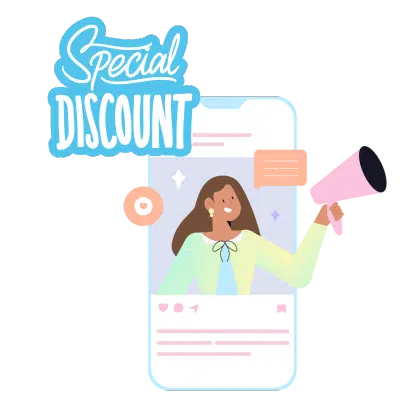
Affiliate Marketing
An influencer promotes your product or service and receives a commission for any sales made through their unique affiliate link or discount code

Product Placement
Provide the influencer(s) with your product or service for free, in exchange for the influencer featuring the product in their content

Guest Posting
An influencer creating content for a brand's website or social media channels

Takeovers
An influencer takes over your company’s social media channels for a set period of time to create and share content
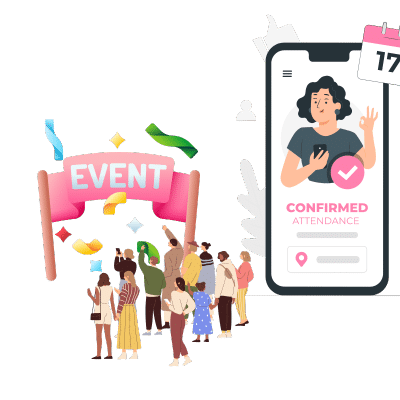
Event Collaborations
Inviting an influencer to attend your event, such as a product launch or store opening, and share their experience with their audience
How to Pitch to Influencers Effectively
- Tailor your outreach message to the influencer and their content
- Start with a friendly greeting and explain why you admire their work and how it aligns with your brand
- Be clear and concise about your collaboration proposal and how you see the collaboration benefiting both parties
- Offer value via your collaboration
- Give a clear understanding of what they can expect in return (compensation, exposure to your audience, or exclusive access to your products or services)
- Be respectful and patient
- Follow up after a week or two
Common Mistakes to Avoid When Using Influencer Marketing
Like all forms of marketing, there are common mistakes to avoid when working with influencers. It is not as cut and dry as contact, provide value, and wait for sales to flow in magically. Collaboration, the right influencer match, providing authentic value, and staying connected are all important.
- Don’t skimp on research – an initial glance at a profile or hearing their name is not enough; ensure all values align and that their engagement is strong and they are enthusiastic about the partnership
- Don’t mislead or assume – be clear about deliverables, offers, expectations, and content
- Don’t micromanage – you should trust the influencer’s creative process and give them the freedom to create content that aligns with their style and their audience; if you micromanage, you risk removing their authentic voice, therefore pushing their followers away
- Lack of communication – you should maintain regular communication with the influencer and provide them with feedback to ensure you both are reaching your goals
- Don’t ignore the influencer’s audience – it’s not just about your influencer’s persona, but the personality of their audience; all sides should be considered to ensure everyone has success
- Don’t be unresponsive – once you partner with an influencer, your social media management team needs to be ready to respond to messages, engage with comments, and produce your own content on your own channel to handle the potential rise of followers; if you are unprepared, followers will find you flaky or lose patience waiting for the thing that got them excited
- Don’t focus solely on metrics – remember to consider the influencer’s brand alignment, storytelling ability, and overall fit; micro influencers and thought leaders can have big impacts with small followings, just like a brand advocate will be more enthusiastic

Conclusion
Working with influencers can be a powerful tool for small local businesses looking to increase their visibility and reach a wider audience. By choosing the right influencer, setting clear goals and expectations, and communicating effectively, small businesses can create authentic and engaging content that resonates with their target audience.
While there may be challenges along the way, by avoiding common mistakes and maintaining a positive and collaborative relationship with influencers, small businesses can reap the benefits of influencer marketing and take their brand to the next level. With the right approach, small businesses can harness the power of influencer marketing to drive growth and success in their local market.
Frequently Asked Questions (FAQs) about Influencer Marketing for Local Businesses
An influencer is a person with a significant social media following who has the ability to influence the purchasing decisions of their followers.
No, influencer marketing is not only for B2C companies. It can also be effective for B2B companies in industries such as technology, finance, and professional services. The key is to identify the right influencers who have a following that matches your target audience and to create content that resonates with them.
